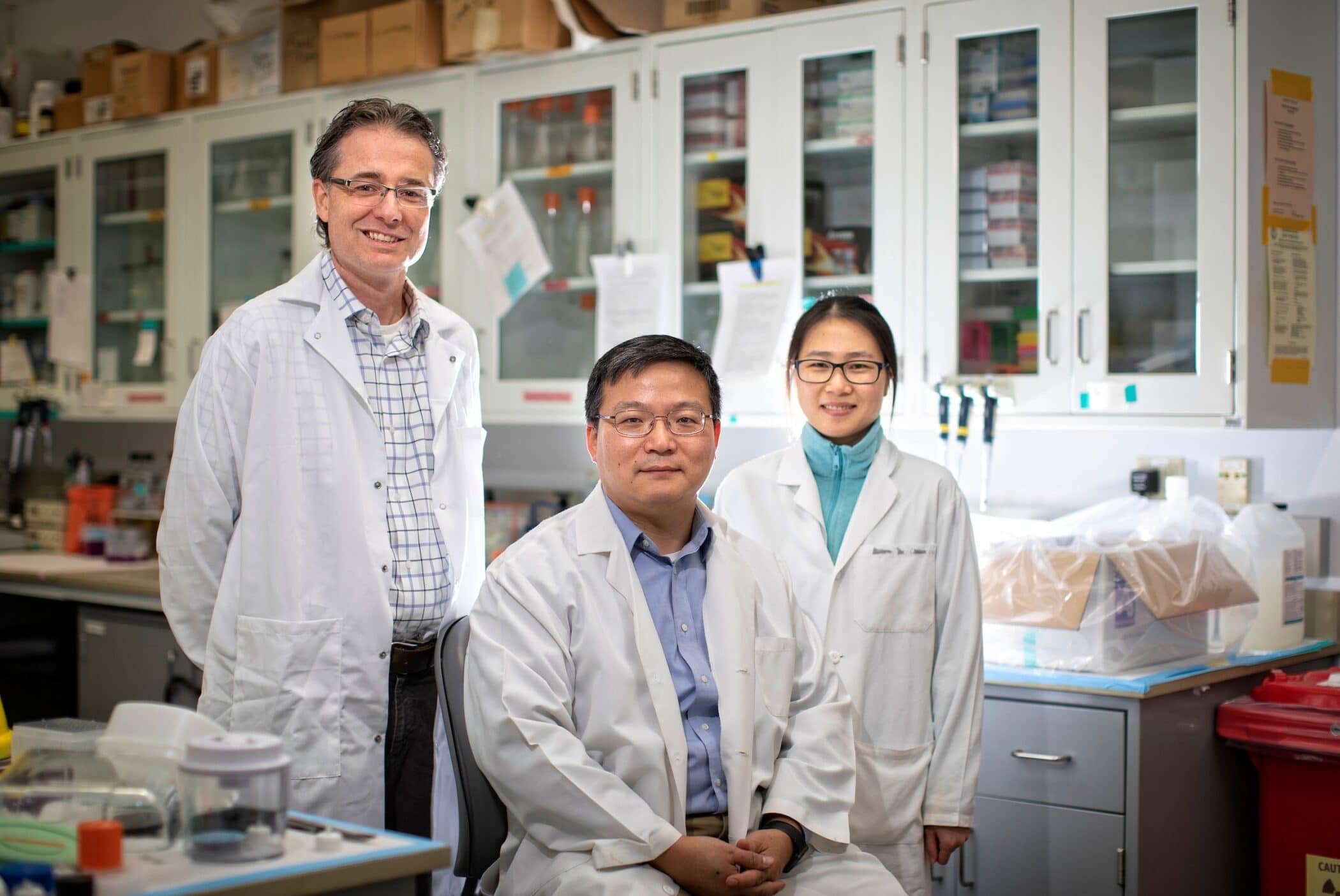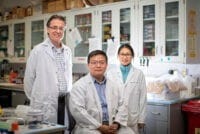
15 Jan Early Research Suggests Antibiotics May Be Effective in One Form of Dementia
MedicalResearch.com Interview with:

UK researchers
Dr. Matthew Gentry, Haining Zhu and Lisha Kuang
December 9, 2019. Photo by Mark Cornelison | UK photo
Haining Zhu, PhD
Department of Molecular and Cellular Biochemistry
University of Kentucky, Lexington, Kentucky
MedicalResearch.com: What is the background for this study?
Response: Frontotemporal dementia is the most common type of early onset dementia impacting people between ages 40 and 65. It affects the frontal and temporal lobes of the brain, which leads to behavior and personality changes, difficulty speaking and writing, and eventual memory deterioration.
A subgroup of patients with frontotemporal dementia have a specific genetic mutation that prevents brain cells from making a protein called progranulin. Although progranulin is not well understood, its absence is linked to the disease.
MedicalResearch.com: What are the main findings?
Response: Our research team discovered that after aminoglycoside antibiotics (Gentamicin and G418) were added to neuronal cells with this mutation, the cells started making the full-length progranulin protein by skipping the mutation.
MedicalResearch.com: What should readers take away from your report?
Response: These results could be promising to drug development. Currently, there are no effective therapies for any type of dementia. This is an early stage of the study, but it provides an important proof of concept that these aminoglycoside antibiotics or their derivatives can be a therapeutic avenue for frontotemporal dementia.
MedicalResearch.com: What recommendations do you have for future research as a result of this work?
Response: After this preclinical proof of concept study, the next step is to study the antibiotics’ effects on mice with the mutation that causes frontotemporal dementia. If we can get the right resources and physician to work with, we could potentially repurpose the FDA-approved drug gentamicin. However, the clinical usage of Gentamicin is limited as it is associated with a number of adverse side effects. Another focus is to possibly develop new compounds from Gentamicin and G418 that could be safer and more effective.
Disclosure: A patent application based on the above results has been filed.
Citation:
Lisha Kuang, Kei Hashimoto, Eric J Huang, Matthew S Gentry, Haining Zhu. Frontotemporal dementia nonsense mutation of progranulin rescued by aminoglycosides. Human Molecular Genetics, 2020; DOI: 10.1093/hmg/ddz280
JOIN OUR EMAIL LIST
[mailpoet_form id="5"]We respect your privacy and will never share your details.
Last Modified: [last-modified]
The information on MedicalResearch.com is provided for educational purposes only, and is in no way intended to diagnose, cure, or treat any medical or other condition. Always seek the advice of your physician or other qualified health and ask your doctor any questions you may have regarding a medical condition. In addition to all other limitations and disclaimers in this agreement, service provider and its third party providers disclaim any liability or loss in connection with the content provided on this website.
Last Updated on January 15, 2020 by Marie Benz MD FAAD
